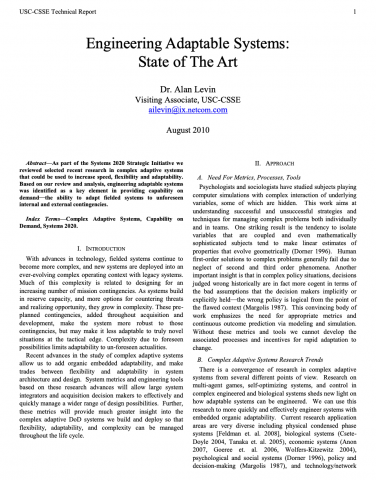Self-optimization in complex adaptive systems is evolving in a similar way and moving from simple models with closed form solutions to consider extended approaches that are applied to problems formerly considered intractable. The approaches include multi-agent reinforcement learning with incremental feedback (Singh et. al. 2009), a variety of Monte Carlo methods (Wolpert 2006), evolutionary approaches that mimic biology (Wolpert-Macready 2005), and surprising self-modeling methods in robotics (Bongard et. al. 2006). Once again, the key to progress appears to be adding heuristics to analysis and combining empirical data from experiments or sensor measurements to assist in predicting system behavior. Just as in multi-agent games, there is the ability to self-optimize using empirical data rather than merely an empirical test after optimization. In fact, the line between multi-agent games and self-optimization is rather blurred though the techniques, and to some extent the preferred application areas, are still distinct. These self-optimization approaches give us insight into the definition and “measurement” of system level performance metrics as we explore the adaptability vs. flexibility trade space at a relatively high level of system abstraction.
Defines standard
Replaced/Superseded by document(s)
Cancelled by
Amended by
| File | MIME type | Size (KB) | Language | Download | |
|---|---|---|---|---|---|
| usc-csse-2011-500.pdf | application/pdf | 138.18 KB | English | DOWNLOAD! |

